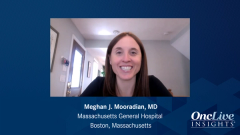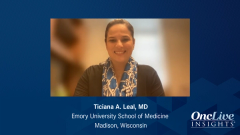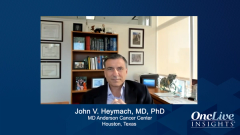
NSCLC: Immunotherapy in Patients With Concomitant KRAS/TP53 Mutations
Expert oncologist John Heymach, MD, PhD, addresses the potential role of immunotherapy in concomitant KRAS/TP53-mutated NSCLC.
Episodes in this series

Transcript:
John V. Heymach, MD, PhD: For KRAS-mutant patients as a whole, there’s clearly a role for PD-1 inhibitors. That can be either PD-1 inhibitor monotherapy or PD-1 plus CTLA4, like the CheckMate 227 regimen with ipilimumab and nivolumab or combinations of chemotherapy with immunotherapy. It’s important to point out that within KRAS, we think of different subgroups that are defined in 2 different ways. On the 1 hand, they’re defined by the KRAS allele like KRASG12C orG12D. On the other hand, you can also divide KRASbased on the co-occurring genomic alteration, like KRAS with STK11, KRAS with KEAP, or KRAS with TP53.
Among those subgroups, when KRAS mutations have a co-occurring TP53 mutation, they seem to respond well to immunotherapy. In fact, when we looked at monotherapy for PD-1 inhibitors, the response rate was over 35% if they had KRAS with TP53, but it was much lower if they had KRAS with any other alteration. TP53 was associated with a better response to immunotherapy. TP53 is usually associated with a little higher tumor mutational burden as well.
How can you detect TP53? It comes out in most next-generation sequencing panels. It’s a very big gene, and there are a lot of places that can have an alteration. Not all those sites are covered by TP53 sequencing depending on which panel is being used. In some cases, different panels will cover only part of the gene. If you don’t see a mutation, that doesn’t mean it’s not there. But if you see a mutation in your report, that does mean it’s almost certainly there. We don’t select therapy based on TP53 mutations, but they’re associated with a better response to immunotherapy. Incidentally, they’re also associated with the worst response to some targeted agents, like EGFR.But we don’t change the therapy based on TP53.
Thank you to our viewing audience for joining us. We hope you found this OncLive® Insights®program to be useful and valuable to the treatment of your patients with lung cancer. Thank you.
Transcript edited for clarity.







































